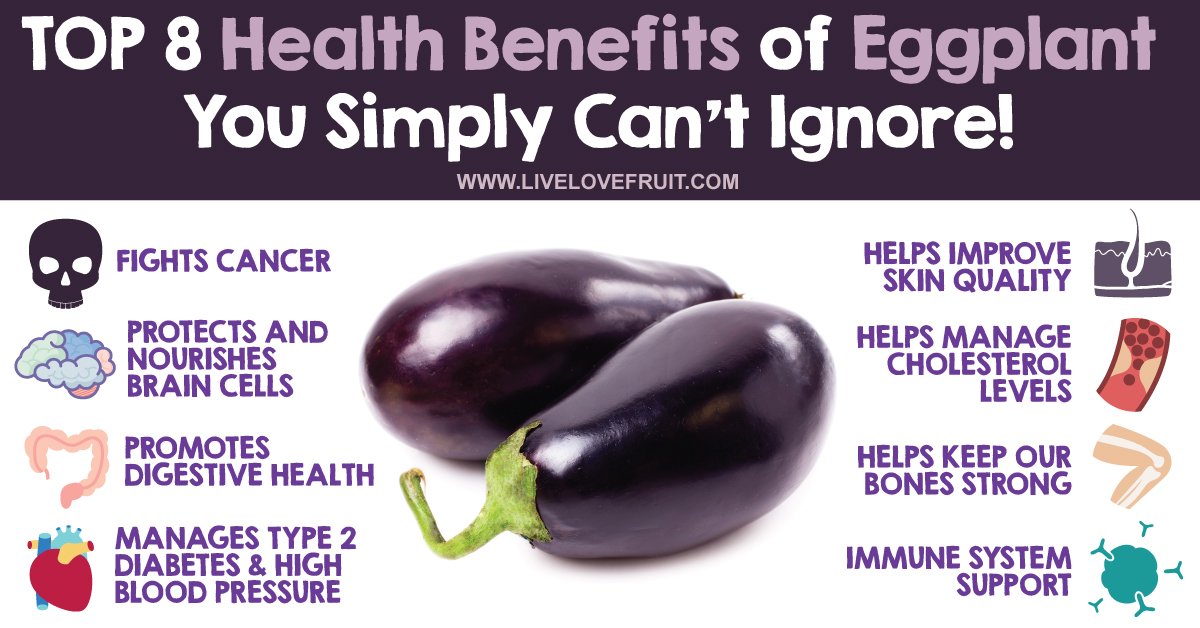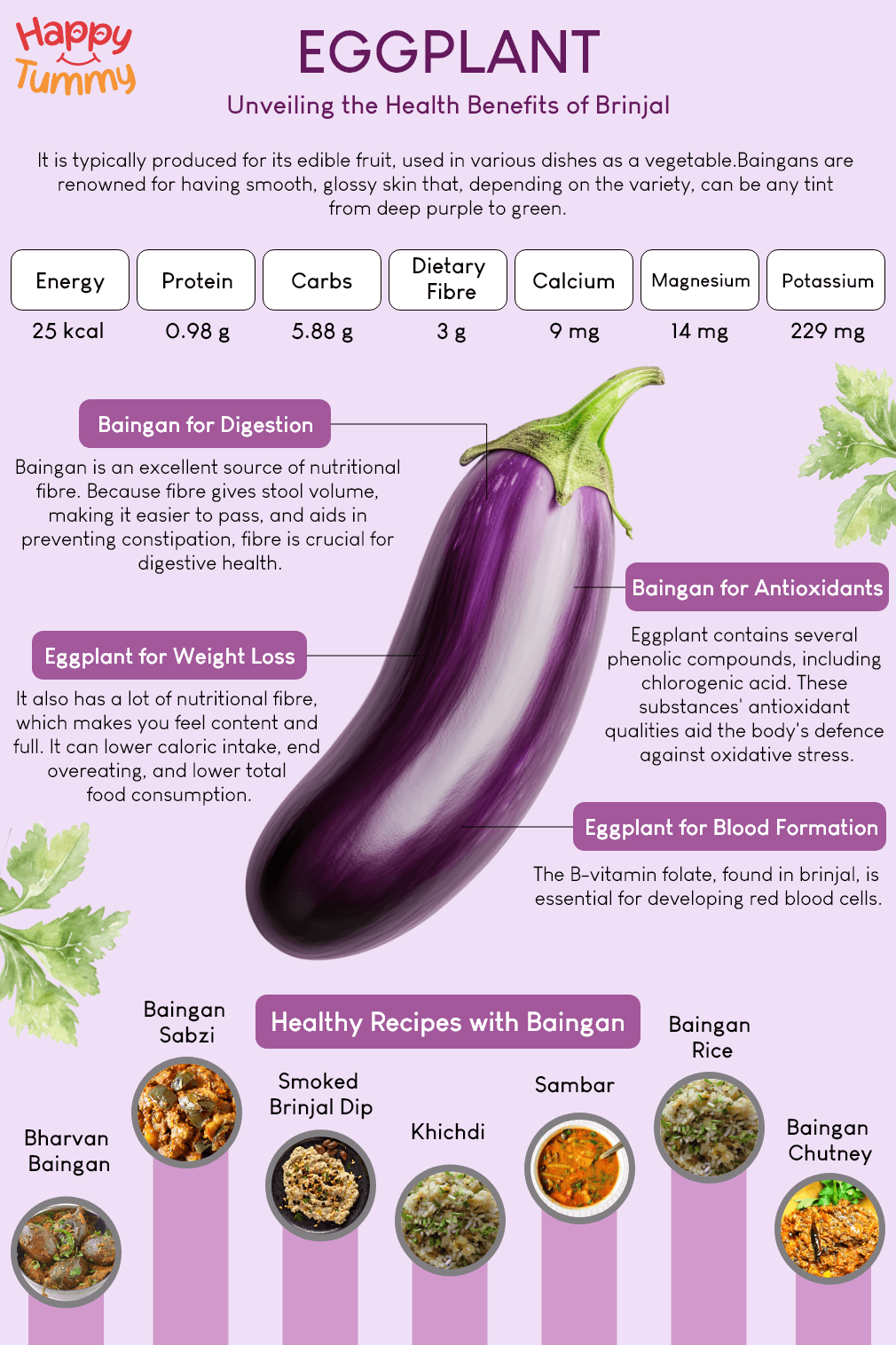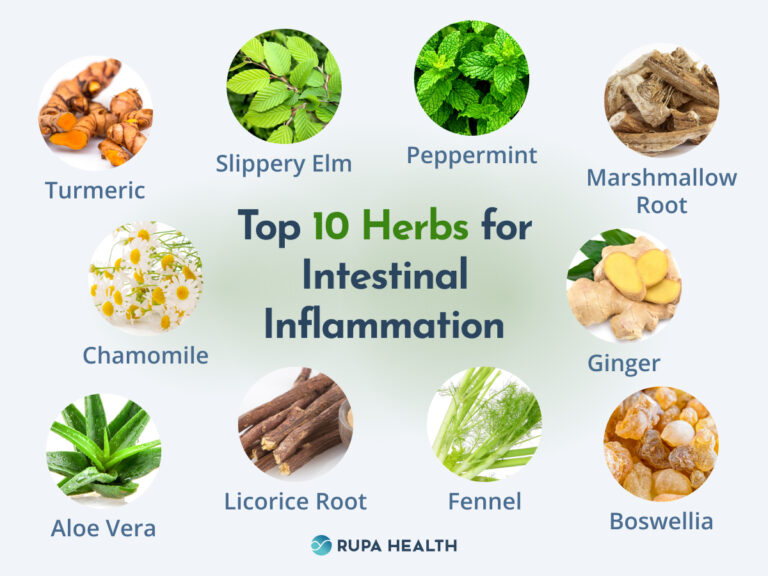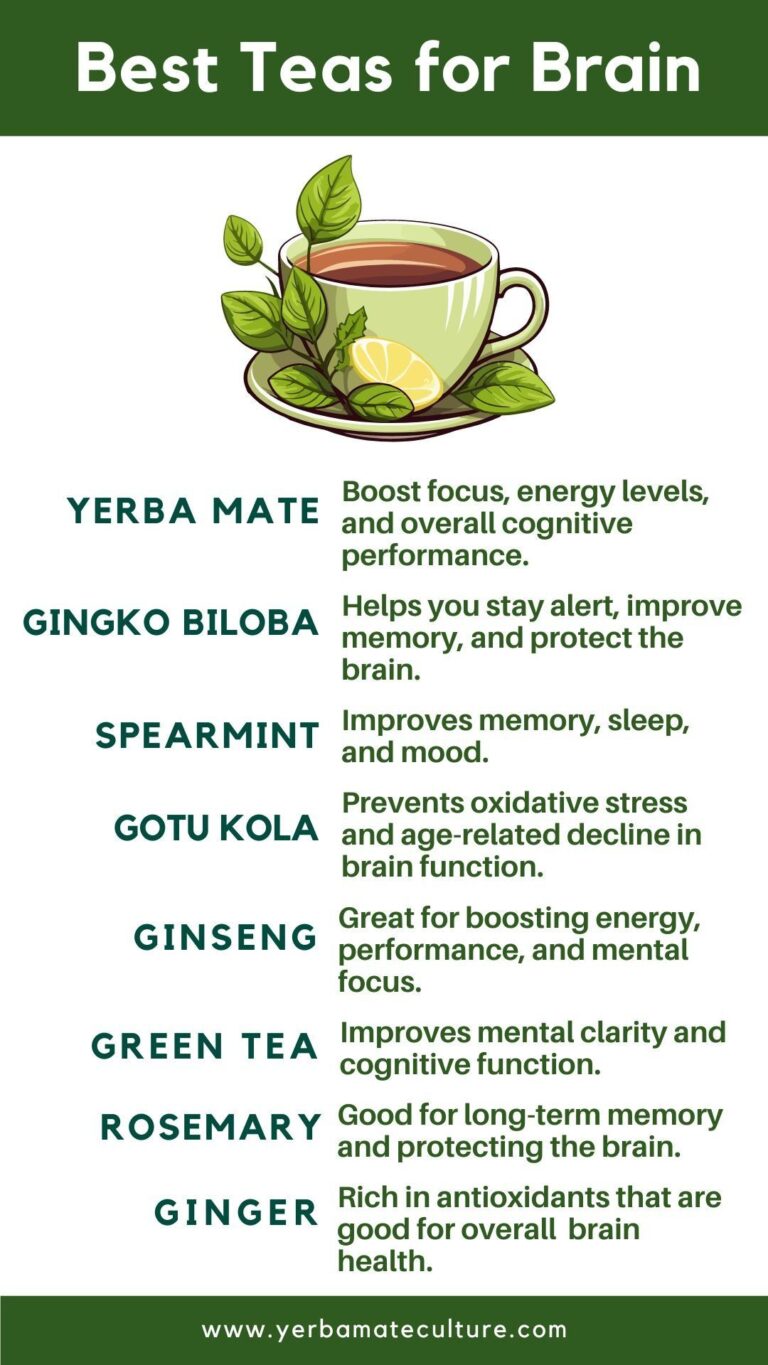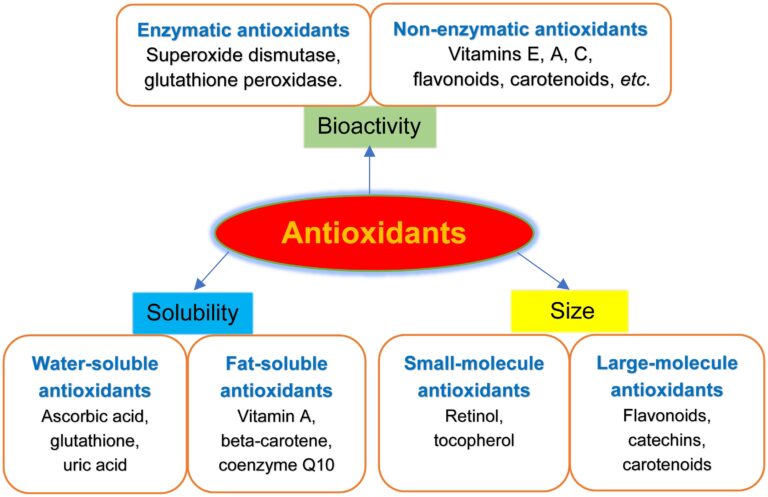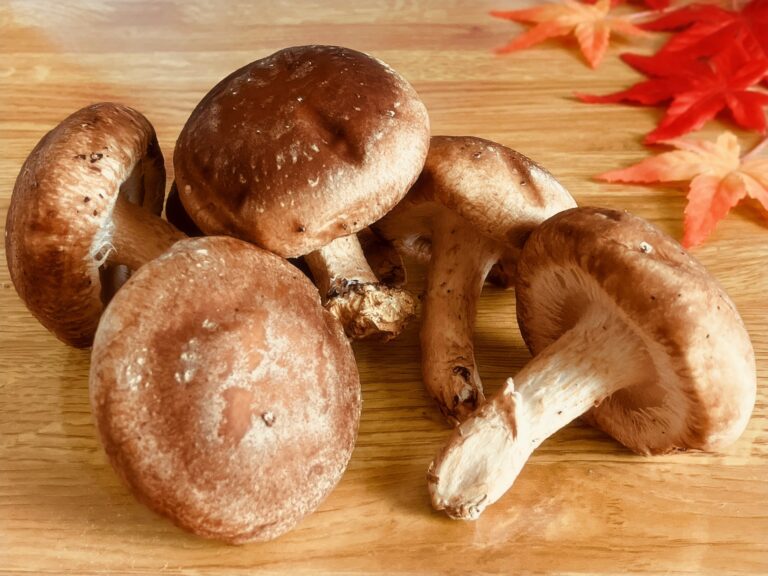The Humble Eggplant: A Health Hero You Might Be Overlooking
In the grand tapestry of our culinary world, certain ingredients command immediate reverence. The vibrant bell pepper, the robust tomato, the versatile potato – they hold prominent, celebrated positions. But then there are the quiet achievers, the unsung heroes that often dwell in the shadows, their immense power underestimated, their true potential overlooked. Among these unassuming champions stands the eggplant, a vegetable often relegated to supporting roles or perceived with a certain culinary apprehension. Yet, beneath its glossy, sometimes enigmatic skin lies a treasure trove of health benefits, a nutritional powerhouse waiting to be discovered and celebrated. This is the story of the humble eggplant, a true health hero that deserves a starring role on your plate and in your wellness journey.
A Journey Through Time and Culture: The Eggplant’s Pedigree
Before we delve into its heroic health attributes, let us embark on a journey through the eggplant’s rich and fascinating history. Our story begins not in the sun-drenched fields of the Mediterranean, as many might assume, but in the distant lands of ancient India and Southeast Asia. Here, over 4,000 years ago, Solanum melongena – the wild ancestor of today’s cultivated eggplant – first took root. It was a plant of humble beginnings, its fruit often small, round, and quite bitter, but its resilience and adaptability paved the way for its incredible global odyssey.
From its birthplace, the eggplant began its slow but steady migration, carried by traders and travelers along the ancient Silk Road. Arab merchants were instrumental in its westward journey, introducing it to Persia, then across North Africa, and finally into Spain by the 8th century. In Europe, it was initially met with suspicion, even fear. Its botanical kinship with nightshades like deadly nightshade and belladonna led to widespread misconceptions. For centuries, it was believed to cause madness, fever, and even leprosy, earning it ominous nicknames like "mad apple" or "mala insana" (bad apple) in Italian. Consequently, it was primarily grown as an ornamental plant or fed to livestock, rarely gracing the tables of the elite or the common folk.
However, as knowledge expanded and culinary experimentation blossomed, these myths began to dissipate. By the 15th and 16th centuries, the eggplant started to gain acceptance, first in warmer regions like Italy and Spain, where its flavor was appreciated in their evolving cuisines. Its true culinary renaissance, however, unfolded in the Ottoman Empire and the Middle East, where it became a foundational ingredient, revered for its ability to absorb flavors and add a unique texture to dishes. From there, it traveled to the Americas with European colonists, eventually finding its way into diverse culinary traditions across the globe.
Today, the eggplant boasts a multitude of names – aubergine in French and British English, brinjal in South Asia, melongene in the Caribbean – each a testament to its widespread adoption and cultural significance. From the deep purple teardrop varieties common in the West to the slender, elongated Japanese and Chinese eggplants, the small, round Thai eggplants, and the white, yellow, or striped varieties, its forms are as diverse as the cultures that cherish it. This historical evolution, from a feared "mad apple" to a celebrated culinary staple, sets the stage for understanding its true heroic nature.
Anatomy of a Hero: Understanding the Eggplant’s Nutritional Profile
To truly appreciate the eggplant as a health hero, we must first dissect its nutritional anatomy. On the surface, it might appear unassuming, largely composed of water. Indeed, a raw eggplant is about 92% water, making it an excellent hydrating food. But beneath this high water content lies a dense concentration of vitamins, minerals, and, most importantly, powerful phytochemicals that are responsible for its profound health benefits.
Let’s break down its macronutrient and micronutrient profile:
- Low in Calories and Carbohydrates: A single cup of raw eggplant (about 82 grams) contains a mere 20 calories and only 4.8 grams of carbohydrates, making it an ideal choice for weight management and for individuals monitoring their carbohydrate intake, such as those with diabetes or on ketogenic diets.
- Rich in Dietary Fiber: This same serving provides 2.5 grams of dietary fiber, accounting for 10% of the recommended daily intake. Fiber is a cornerstone of digestive health and plays a crucial role in many other bodily functions.
- Vitamins: Eggplant is a good source of several B vitamins, including Vitamin B6 (pyridoxine), essential for brain development and function, and Thiamine (B1) and Niacin (B3), which aid in energy metabolism. It also provides a decent amount of Vitamin K, vital for blood clotting and bone health, and a small but significant amount of Vitamin C, a well-known antioxidant and immune booster.
- Minerals: This purple marvel delivers a spectrum of essential minerals. It’s particularly rich in Potassium, a crucial electrolyte that helps regulate blood pressure and fluid balance. You’ll also find Manganese, important for bone formation and antioxidant defense; Copper, vital for iron absorption and red blood cell formation; and smaller amounts of Magnesium and Folate.
While these macronutrients, vitamins, and minerals lay a solid foundation, the true heroism of the eggplant lies in its vibrant array of phytochemicals and antioxidants. These are the compounds that give the eggplant its distinctive color and, more importantly, its potent disease-fighting capabilities.
The undisputed star of the show is Nasunin, an anthocyanin responsible for the eggplant’s deep purple hue, particularly concentrated in its skin. Anthocyanins are a class of flavonoids renowned for their powerful antioxidant properties. Nasunin, specifically, is a potent free radical scavenger, meaning it actively seeks out and neutralizes harmful free radicals that can damage cells and contribute to chronic diseases. What makes Nasunin truly exceptional is its ability to bind with iron and transport it out of cells, a process known as chelation. While iron is essential, excessive iron can generate free radicals and contribute to oxidative stress, especially in the brain. Nasunin’s chelating ability therefore plays a protective role, particularly for neurological health.
Another significant player in the eggplant’s antioxidant arsenal is Chlorogenic Acid. Found in abundance, particularly in the flesh, chlorogenic acid is a polyphenol that exhibits a broad spectrum of health benefits. It is a powerful antioxidant, even more potent than some other well-known antioxidants like Vitamin C. Beyond its free-radical-scavenging capabilities, chlorogenic acid has been studied for its potential anti-inflammatory, anti-viral, anti-bacterial, and even anti-cancer properties.
Beyond Nasunin and Chlorogenic Acid, eggplant also contains other beneficial flavonoids and phenolic compounds, all working synergistically to provide comprehensive cellular protection against oxidative stress and inflammation. This rich biochemical tapestry is what elevates the eggplant from a mere vegetable to a formidable health hero.
The Eggplant’s Arsenal: Specific Health Benefits (The Hero’s Feats)
Now that we understand the eggplant’s composition, let’s explore the specific feats this humble hero performs for our health. Its array of nutrients and phytochemicals translates into a wide range of benefits that impact nearly every system in the body.
1. Brain Health & Cognitive Function: Guarding the Mind
The brain, our body’s command center, is highly susceptible to oxidative stress. Free radicals can damage brain cells and contribute to cognitive decline and neurodegenerative diseases. This is where the eggplant’s heroics truly shine. The star compound, Nasunin, found predominantly in the skin, is a potent antioxidant and a powerful ally for brain health.
Nasunin’s unique ability to chelate iron helps prevent iron overload in brain cells, which can otherwise generate harmful free radicals. By protecting the lipid membranes of brain cells from oxidative damage, Nasunin helps maintain cellular integrity and function. Furthermore, research suggests that Nasunin may also promote better blood flow to the brain, ensuring a steady supply of oxygen and nutrients essential for optimal cognitive performance. This protection against cellular damage and improved circulation can contribute to better memory, enhanced cognitive function, and potentially reduce the risk of age-related neurological disorders.
2. Heart Health & Cardiovascular Support: A Shield for the Heart
Cardiovascular disease remains a leading cause of mortality worldwide. The eggplant offers multiple layers of protection for the heart and blood vessels.
- Cholesterol Management: The high fiber content of eggplant plays a crucial role here. Soluble fiber binds with cholesterol in the digestive tract, preventing its absorption and facilitating its excretion from the body. This can lead to a reduction in LDL ("bad") cholesterol levels.
- Blood Pressure Regulation: Eggplant is an excellent source of Potassium, a vital electrolyte that counteracts the effects of sodium in the body. Adequate potassium intake is associated with lower blood pressure, which is a major risk factor for heart disease and stroke.
- Antioxidant Protection: The abundant antioxidants, particularly Chlorogenic Acid and Anthocyanins, protect blood vessel walls from oxidative damage and inflammation. Healthy, flexible blood vessels are crucial for efficient blood flow and preventing the buildup of plaque that can lead to atherosclerosis. Studies have indicated that these compounds can help reduce markers of inflammation and improve lipid profiles, further safeguarding cardiovascular health.
3. Blood Sugar Management & Diabetes Prevention: Stabilizing the Sweetness
For individuals managing blood sugar levels or at risk of type 2 diabetes, the eggplant is a valuable dietary inclusion.
- Fiber’s Role: The high fiber content slows down the digestion and absorption of carbohydrates, leading to a more gradual rise in blood sugar levels after meals. This prevents sharp spikes that can strain the insulin response.
- Low Glycemic Index: Eggplant has a very low glycemic index, meaning it has a minimal impact on blood glucose.
- Phenolic Compounds: Research suggests that certain phenolic compounds in eggplant, including chlorogenic acid, may inhibit enzymes involved in glucose metabolism, potentially further contributing to better blood sugar control. While not a cure, regular consumption can be a supportive measure in a diabetes-friendly diet.
4. Digestive Health: Promoting Gut Harmony
A healthy gut is foundational to overall well-being, and the eggplant is a true friend to the digestive system.
- Fiber for Regularity: The significant dietary fiber content adds bulk to stool, promoting regular bowel movements and preventing constipation. This helps keep the digestive tract clean and functioning efficiently.
- Gut Microbiome Support: Fiber also acts as a prebiotic, feeding the beneficial bacteria in the gut microbiome. A thriving gut microbiome is linked to improved nutrient absorption, stronger immunity, and even better mood. By supporting a healthy gut, eggplant indirectly contributes to a host of other health benefits.
5. Weight Management: The Satiating Ally
In the quest for healthy weight management, the eggplant emerges as an excellent ally.
- Low Calorie Density: As mentioned, it’s incredibly low in calories, allowing you to consume a substantial portion without significantly increasing your caloric intake.
- High Water Content: Its high water content contributes to feelings of fullness.
- Fiber for Satiety: The fiber content adds bulk and slows digestion, promoting satiety and reducing overall food intake. When you feel full and satisfied, you’re less likely to overeat or snack on unhealthy options. Substituting higher-calorie ingredients with eggplant can be a simple yet effective strategy for calorie reduction.
6. Anti-inflammatory Properties: Quelling the Internal Fire
Chronic inflammation is a silent perpetrator behind many chronic diseases, from arthritis to heart disease and certain cancers. The eggplant’s rich antioxidant profile is a powerful anti-inflammatory agent.
- Antioxidant Action: The combined action of anthocyanins (Nasunin) and chlorogenic acid effectively neutralizes free radicals, which are key drivers of inflammatory processes. By reducing oxidative stress, these compounds help to dampen the body’s inflammatory response, potentially alleviating symptoms of inflammatory conditions and reducing the risk of long-term damage.
7. Potential Anti-cancer Properties: A Promise of Protection
While research is still emerging and primarily conducted in vitro (in test tubes) and in animal studies, there is promising evidence suggesting that eggplant may possess anti-cancer properties.
- Cellular Protection: The powerful antioxidants like Nasunin and Chlorogenic Acid protect cells from DNA damage, a precursor to cancer development.
- Apoptosis Induction: Some studies have indicated that certain compounds in eggplant may induce apoptosis (programmed cell death) in cancer cells and inhibit tumor growth. This area of research is complex and ongoing, and it’s important to emphasize that eggplant is not a cure for cancer. However, its inclusion in a diet rich in fruits and vegetables contributes to a broader strategy for cancer prevention.
8. Bone Health: Building Strong Foundations
Though not as renowned as dairy for bone health, eggplant contributes to skeletal strength in subtle but significant ways.
- Manganese: This trace mineral is essential for bone formation and maintaining bone density.
- Vitamin K: Crucial for bone metabolism, Vitamin K helps regulate calcium in the body and plays a role in bone mineralization.
- Iron Chelation: While iron is necessary, excessive iron can negatively impact bone health. Nasunin’s ability to chelate excess iron may indirectly benefit bone health by maintaining a healthy mineral balance.
9. Skin Health: Radiance from Within
The same antioxidants that protect internal organs also benefit the largest organ of our body: the skin. By neutralizing free radicals, the antioxidants in eggplant help protect skin cells from environmental damage, reduce signs of premature aging, and contribute to a healthier, more radiant complexion.
Addressing the Myths and Maximizing the Benefits
Despite its impressive health credentials, the eggplant has historically been plagued by certain myths and culinary challenges. Understanding and addressing these can help you fully embrace this heroic vegetable.
The "Bitter" Reputation: A Relic of the Past
For many, the mention of eggplant conjures images of bitterness. This reputation stems from older, traditional varieties that indeed contained higher concentrations of solanine, a natural glycoalkaloid that can impart a bitter taste, especially in larger, more mature fruits with numerous seeds.
However, modern cultivation techniques have largely bred out this bitterness. Most eggplants found in supermarkets today are hybridized to be far less bitter. If you do encounter a hint of bitterness, or simply want to ensure a milder flavor, the traditional salting method remains effective.
The Salting Technique:
- Slice the eggplant into desired shapes (rounds, cubes, planks).
- Generously sprinkle salt over the cut surfaces.
- Let it sit for 30-60 minutes. You’ll notice beads of moisture forming on the surface.
- Rinse the eggplant thoroughly under cold water to remove the salt and the bitter juices.
- Pat it completely dry with paper towels before cooking.
This process draws out not only some bitter compounds but also excess water, which leads us to the next common challenge.
The "Sponge" Effect: Taming the Oil Absorber
Eggplant’s porous flesh has a notorious tendency to absorb oil like a sponge, which can lead to greasy, heavy dishes and negate some of its healthy attributes. But this is a culinary hurdle that can be easily overcome.
- Salting (Again!): The salting technique mentioned above is also highly effective in reducing oil absorption. By drawing out excess water, the eggplant’s cells become less receptive to oil.
- Cooking Methods:
- Grilling & Roasting: These are excellent methods. Brushing the eggplant lightly with oil and cooking it at high heat allows it to brown and soften without excessive oil absorption.
- Air Frying: A fantastic modern option for achieving a crispy texture with minimal oil.
- Steaming: A completely oil-free method that leaves the eggplant tender and ready to absorb the flavors of a sauce.
- Baking: Similar to roasting, baking in a hot oven with a light oil coating works well.
- Use Less Oil: Don’t drown your eggplant in oil. A light brush or spray is often sufficient. If sautéing, add a small amount of oil at a time, and consider using a non-stick pan.
- Pre-cook/Blanch: Briefly blanching or steaming eggplant before adding it to stir-fries or stews can reduce its oil absorption during subsequent cooking.
Preparation Tips: Embracing the Hero Whole
- Selection: Choose eggplants that are firm, heavy for their size, and have smooth, glossy skin without blemishes or soft spots. The stem and cap should be green and fresh-looking.
- Storage: Store whole eggplants in a cool, dry place or in the crisper drawer of your refrigerator. Use within a few days for optimal freshness. Avoid cutting it until you’re ready to cook, as the flesh can oxidize and turn brown.
- Skin On vs. Skin Off: Always cook eggplant with its skin on whenever possible! The skin is where the highest concentration of Nasunin and other beneficial antioxidants resides. Peeling it away means discarding a significant portion of its heroic health benefits. The skin also holds the flesh together, preventing it from becoming too mushy.
- Cutting: Eggplant can be cut into rounds, cubes, planks, or wedges depending on the recipe. The cut surfaces will oxidize (turn brown) when exposed to air, but this doesn’t affect flavor or safety. If you’re concerned about aesthetics, you can briefly soak cut eggplant in a bowl of water with a squeeze of lemon juice.
Culinary Versatility: The Hero in Disguise
Beyond its health prowess, the eggplant is a culinary chameleon, capable of adapting to an astonishing array of flavors and cooking styles. Its unique texture and ability to absorb seasonings make it a beloved ingredient across diverse global cuisines.
- Mediterranean Masterpieces: Think of the creamy, smoky Baba Ghanoush from the Middle East, a dip made from roasted eggplant, tahini, lemon, and garlic. Or the iconic Greek Moussaka, layers of spiced lamb, eggplant, and béchamel sauce. In Italy, Parmigiana di Melanzane (eggplant parmesan) is a beloved classic, featuring baked eggplant slices with tomato sauce, mozzarella, and basil.
- Asian Allure: Japanese cuisine features delicate Nasu Dengaku, broiled eggplant with a sweet miso glaze. In China, stir-fried eggplant dishes, often with garlic and soy sauce, are incredibly popular. Indian curries like Aloo Brinjal (potato and eggplant) showcase its ability to blend seamlessly with bold spices.
- French Finesse: The rustic French stew Ratatouille elevates eggplant alongside zucchini, bell peppers, and tomatoes into a harmonious vegetable medley.
- Beyond the Classics: Don’t limit yourself to traditional recipes. Eggplant can be grilled for a smoky side dish, roasted until tender and sweet, puréed into soups, added to stews, stir-fried, or even used as a meat substitute in vegetarian burgers or tacos. Its meaty texture makes it an excellent plant-based option for those seeking to reduce meat consumption.
The key to unlocking the eggplant’s culinary heroics is to embrace its versatility. Experiment with different spices, herbs, and cooking methods. Pair it with complementary flavors like garlic, onions, tomatoes, fresh herbs (basil, mint, parsley), cheese, and various protein sources. Its mild, slightly earthy flavor makes it a perfect canvas for your culinary creativity.
Conclusion: A Call to Action
The humble eggplant, once misunderstood and overlooked, stands revealed as a true health hero. From its ancient origins to its global culinary dominance, its journey is a testament to its enduring appeal and remarkable resilience. But beyond its historical and gastronomic significance, it is its profound impact on our health that truly defines its heroic stature.
With its potent cocktail of antioxidants like Nasunin and Chlorogenic Acid, its generous fiber content, and its array of essential vitamins and minerals, the eggplant champions brain health, guards the heart, stabilizes blood sugar, promotes digestive harmony, aids in weight management, and quells the flames of inflammation. It is a vibrant, versatile, and nutrient-dense powerhouse that deserves a prominent place in every health-conscious kitchen.
So, the next time you browse the produce aisle, don’t pass by this glossy, purple marvel. Embrace the eggplant. Experiment with its myriad culinary possibilities. Discover its subtle flavors and satisfying textures. By doing so, you’re not just adding a delicious vegetable to your meal; you’re inviting a quiet, powerful health hero into your life, one that is ready to contribute significantly to your well-being, one delicious bite at a time. It’s time to give the humble eggplant the recognition it truly deserves – as an essential component of a vibrant, healthy diet.
